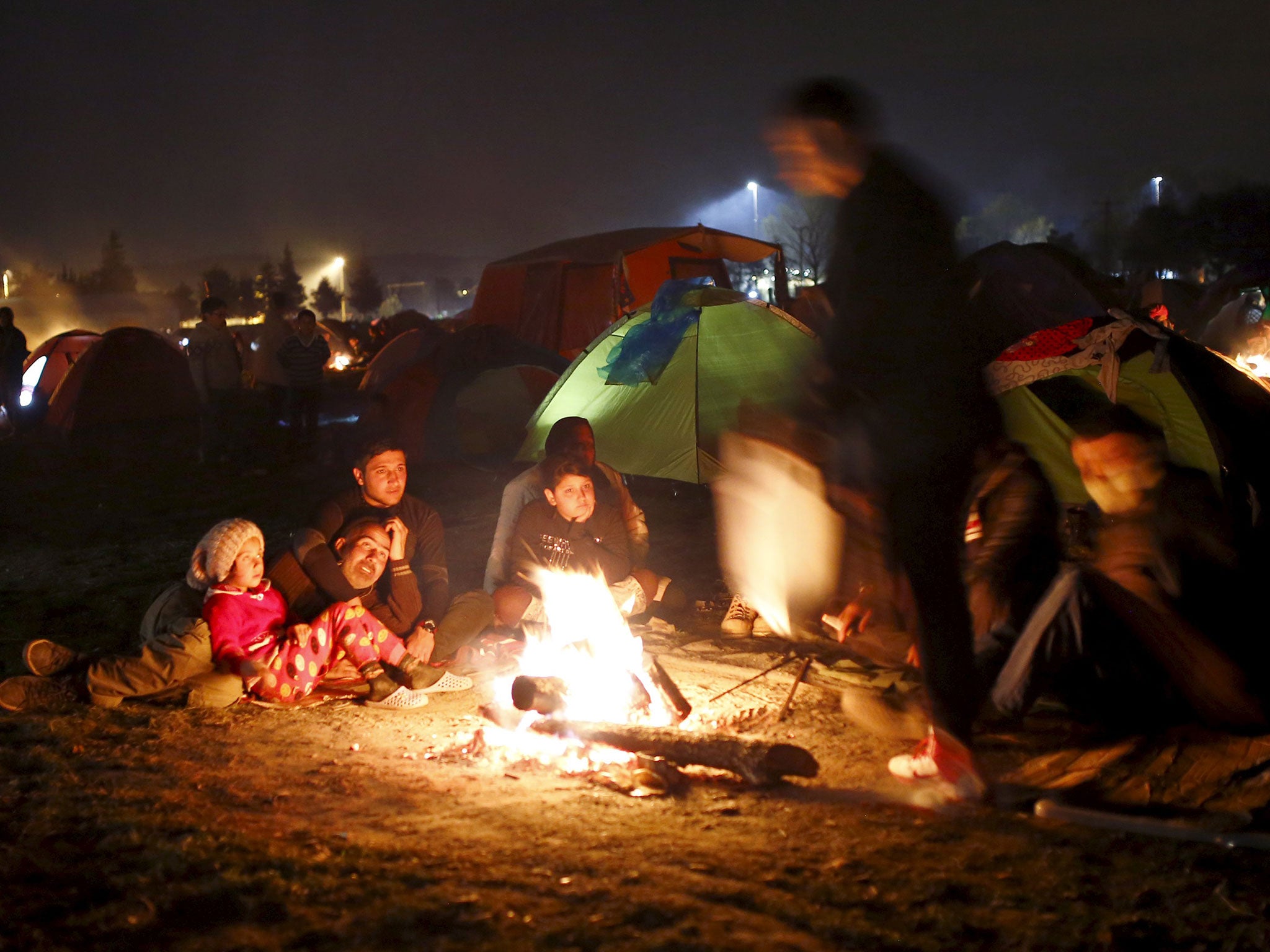It would be naive to hope that an agreement between Turkey and the EU will seriously stem the flow of refugees
This crisis is going to run and run

Your support helps us to tell the story
From reproductive rights to climate change to Big Tech, The Independent is on the ground when the story is developing. Whether it's investigating the financials of Elon Musk's pro-Trump PAC or producing our latest documentary, 'The A Word', which shines a light on the American women fighting for reproductive rights, we know how important it is to parse out the facts from the messaging.
At such a critical moment in US history, we need reporters on the ground. Your donation allows us to keep sending journalists to speak to both sides of the story.
The Independent is trusted by Americans across the entire political spectrum. And unlike many other quality news outlets, we choose not to lock Americans out of our reporting and analysis with paywalls. We believe quality journalism should be available to everyone, paid for by those who can afford it.
Your support makes all the difference.While Syrians traumatised by civil war were dispersed by tear gas at the Macedonian border at the weekend, European Council president Donald Tusk was assuring his fellow leaders that all would soon be smoothed over. “For the first time since the beginning of the migration crisis,” he wrote cheerfully, “I can see a European consensus emerging.”
Mr Tusk’s good humour was down to the fact that he is hopeful of gaining the agreement of Turkey, at a summit in Brussels on 6 March, to take back large numbers of migrants who have recently entered Europe but who are ineligible for European asylum. This would be in addition to the previous agreement between Angela Merkel and Turkish President Recep Tayyip Erdogan by which Turkey agreed to stop migrants leaving its coast in the first place.
But given the fact that thousands of people continue to pour across the Aegean unhindered despite that earlier deal, priced at €3bn, is there reason to believe this new wheeze will fare any better? And the corollary, that the EU will for its part accept large numbers of legitimate refugees, is further evidence that Mr Tusk lives in Euro la-la land. Hungary’s Viktor Orban, for one, has flatly ruled out taking any more, whether they are legitimate or not.
Last week Mr Tusk told Turkish PM Ahmet Davutoglu that the plan to send economic migrants back to Turkey en masse would “effectively break the business model of the smugglers”. Breaking that business model is indeed a fine ambition, and it is good to hear it from the lips of a senior European official. But if he believes it can be accomplished so easily, it is another sign that he is wildly out of touch.
The ugly fact is that the people smugglers, engorged by the huge profits they have been making for many years before the outbreak of the Syrian civil war as well as since, will continue to have the whip hand, whatever agreement Europe and Turkey can cook up on 6 March. Protecting external borders is a fundamental duty of governments, but one which the EU has never taken seriously: the smugglers have been funnelling people into southern Europe with complete impunity.
The Syrian civil war and the ensuing floods of refugees would have posed a big challenge to Europe in any circumstances, but it has been hideously complicated by the fact that hundreds of thousands of the people on the move – around half the total – come from countries such as Morocco, Albania, Pakistan and Bangladesh and have no realistic hope of gaining asylum.
Mr Davutoglu has already said that he favours the idea of economic migrants being returned to Turkey in principle, but even if such a deal is signed on 6 March, there is no certainty it will work out in practice. As Mr Tusk himself admitted, it poses “a logistical challenge”. And clinching such an agreement will deepen Europe’s uncomfortable relationship with the increasingly tyrannical Erdogan regime, whose takeover on 4 March of Zaman, Turkey’s most popular newspaper, was evidence of self-confidence bordering on the reckless. Europe’s response to this outrageous assault on freedom of expression was notably muted, for obvious political reasons.
As long as the menace of the people smuggling networks remains unaddressed, seedy and unrealistic deals with Ankara will solve little. Yet the EU border and coast guard intended to replace the useless Frontex agency will not be active until November, and there is no guarantee it will be up to the job. This crisis is going to run and run.
Join our commenting forum
Join thought-provoking conversations, follow other Independent readers and see their replies
Comments